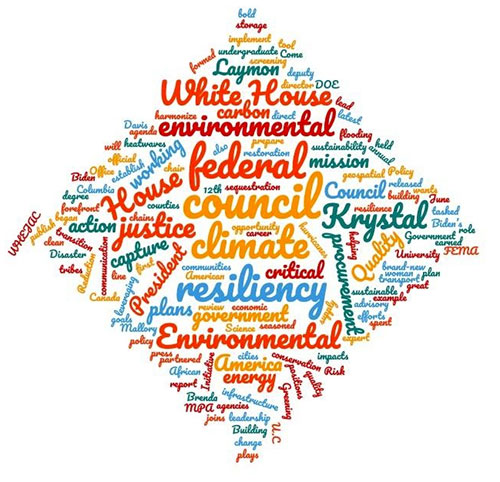Come hear the latest on President Biden’s plans to build resiliency in America. Krystal Laymon, an expert on climate, resiliency, and energy policy, joins the opening Plenary at our 2021 Conference from the White House Council on Environmental Quality. The council is tasked with helping communities prepare for flooding, hurricanes, heatwaves, and other impacts of climate change. This is a great opportunity to establish a direct line of communication with the White House on climate resiliency.

President Biden has a bold climate plan and wants the federal government to lead by example. The White House Council on Environmental Quality is at the forefront of this federal agenda. The council began in 1969 with a mission to harmonize federal action with environmental quality.
The 12th chair of the Council is Brenda Mallory, a seasoned government official and first African American woman to lead the effort. Under her leadership, the council plays a critical role in environmental justice, federal sustainability, procurement, carbon capture and sequestration, infrastructure, and conservation and restoration efforts.
The council formed a brand-new advisory council on environmental justice (WHEJAC) and will publish an annual geospatial climate and economic justice screening tool. In June, the council released a report on carbon capture, transport, and storage. They are working with 36 federal agencies on climate action plans and partnered with Canada on a Greening Government Initiative. The council is also leveraging its review of federal procurement to press for a transition to clean energy and sustainable supply chains.
Krystal Laymon is the deputy director for climate resilience at the council. She held positions at FEMA, DOE, and the UN Office for Disaster Risk Reduction and spent her career working with cities, counties, and tribes to implement climate and resiliency goals. Krystal earned an MPA in Environmental Science and Policy from Columbia University and an undergraduate degree from U.C. Davis.




